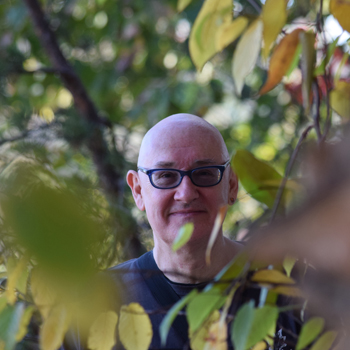National Poetry Month 2020
cris cheek is a documentary performance writer, sound
composer, and photographer. They worked alongside Bob Cobbing and Bill
Griffiths with the Consortium of London Presses in the mid 1970’s to run a
thriving open access print shop for little
press poets. In 1981 they co-founded a collective movement-based
performance resource in the east end of London at Chisenhale Dance Space,
working in collaboration with choreographers, musicians, and performance
artists to make interdisciplinary events. cris taught Performance Writing at
Dartington College of Arts (1995-2002), played music with Sianed Jones and
Philip Jeck as Slant, collaborated on
works about value and recycling with Kristen Lavers in Things Not Worth Keeping and has been a professor at Miami
University in Ohio since 2005. cris lives in Cincinnati. Most recent
publications are the church and the
school, the beer (Critical Documents, 2007), part:short life housing (The Gig, 2009), pickles & jams (BlazeVOX Books, 2017), and fukc all the king’s men: the tower and a few beasts living in its
rubble (Xerolage, 2019). They podcast with Mark Hagood as Phantom Power:
sounds about sound.
It would be, in every sense, a fool’s errand to try and pin
down what particularly interested me so thoroughly in cris cheek’s work that I
was compelled to reach out to them for an interview; not because it couldn’t be
done, but because any attempt to delineate singular points of interest would
inevitably only serve to push away others just as present as I read their work.
To say, for example, that I was drawn immediately to the way in cheek’s pickles & jams that words, lines,
even stanzas dance staggeringly across the page, often floating towards and
juking away from stability, while certainly true, would ignore how equally
pulled I felt toward the way cheek’s refusal of alphabetic context in fukc all the king’s men: the tower and a few
beasts living in its rubble simultaneously implodes reading-as-such and
constructs images so literal they refuse to not be read. Perhaps the most sensible
argument I can make for the following interview is that cheek’s work is, at
every point, a performance; therefore, like all great performances, cheek’s
work inspired in me the festering curiosity that ignites every
behind-the-scenes documentary. I needed to know the distance between the artist
in the wings and art unfolding on stage. More importantly, I needed to know
how, and by what crafty devices, the distance might be crossed so fluidly, so
fully, and with such clarity of motion that I found myself unsure the distance
actually existed.
Continue reading →



